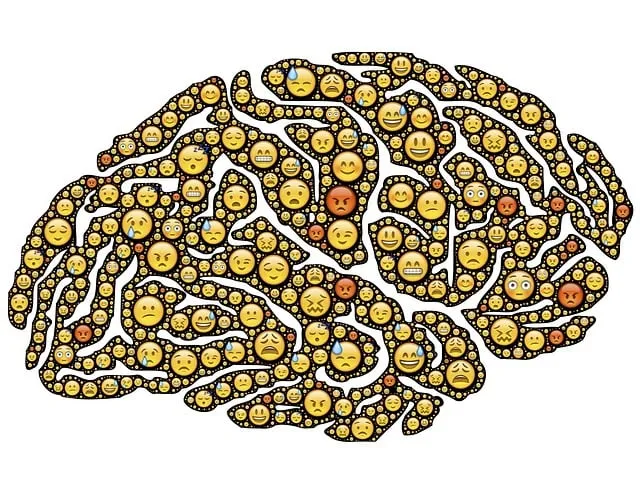Aurora Kaiser's mental health classes focus on comprehensive risk management, prioritizing self-care and patient safety. Integrating stigma reduction, mindfulness meditation, and Trauma Support Services, her approach enhances professional and client resilience. Through continuous evaluation, peer feedback, and adaptive communication, Kaiser empowers practitioners to navigate challenges effectively, fostering inclusive, nurturing environments for healing and improved mental wellness.
In the dynamic field of mental health, effective risk management planning is paramount for professionals aiming to deliver safe and impactful care. This article explores critical aspects of risk in mental health practice, guiding practitioners toward building resilient systems that prioritize patient safety. We delve into proven strategies, such as Aurora Kaiser’s approach to continuous evaluation, offering valuable insights from her renowned mental health classes. By understanding risk and implementing robust management techniques, professionals can enhance their practices and foster healthier outcomes.
- Understanding Risk in Mental Health Practice
- Building Resilient Systems for Patient Safety
- Continuous Evaluation: Aurora Kaiser's Approach
Understanding Risk in Mental Health Practice

In the realm of mental health practice, understanding risk is paramount to effective and safe care. Risk management involves identifying potential hazards within the therapeutic process and implementing strategies to mitigate their impact. Mental health professionals encounter diverse challenges, from managing client expectations to addressing complex ethical dilemmas. For instance, Aurora Kaiser’s mental health classes emphasize the importance of self-care for practitioners, recognizing that burnout is a significant risk factor affecting both professionals’ well-being and the quality of care they provide.
The landscape of mental health care is further complicated by societal factors such as the stigma associated with mental illness. Stigma reduction efforts play a crucial role in creating an environment where individuals feel comfortable seeking support. Techniques like mindfulness meditation, taught in Kaiser’s classes, offer practitioners tools to enhance their resilience and self-esteem, enabling them to better assist clients. By integrating these strategies into risk management planning, mental health professionals can foster a more inclusive and supportive ecosystem, ultimately improving outcomes for both practitioners and clients.
Building Resilient Systems for Patient Safety

In the realm of mental health professional services, ensuring patient safety and fostering a resilient system is paramount. At Aurora Kaiser’s mental health classes, a strong emphasis is placed on developing robust strategies for risk management. This involves a multi-faceted approach to building a supportive environment that mitigates potential risks and promotes positive outcomes for patients. One key aspect is integrating Trauma Support Services, which are crucial in addressing the unique needs of individuals with traumatic backgrounds. By incorporating specialized techniques and resources, mental health professionals can create a sanctuary where individuals feel empowered and supported in their journey towards healing.
Additionally, promoting Self-Esteem Improvement through targeted interventions and Mental Wellness Journaling Exercise Guidance equips patients with valuable tools for self-reflection and empowerment. These practices not only enhance overall mental wellness but also serve as protective measures against emerging risks. By fostering a culture of resilience within the system, Aurora Kaiser’s classes ensure that both professionals and patients are equipped to navigate challenges effectively, ultimately contributing to a safer and more nurturing environment for all involved.
Continuous Evaluation: Aurora Kaiser's Approach

In the realm of mental health professional practice, continuous evaluation is a cornerstone of effective risk management planning. Aurora Kaiser, a renowned figure in the field, advocates for an ongoing assessment approach that goes beyond periodic reviews. Her method involves integrating regular self-reflection and peer feedback into the workflow, enabling practitioners to identify potential risks or challenges as they emerge. This proactive strategy, often seen in her mental wellness coaching programs, ensures professionals remain attuned to their own mental wellness and that of their clients.
By fostering a culture of continuous evaluation, mental health professionals can enhance their ability to adapt communication strategies, which are crucial for building strong therapeutic alliances. This dynamic approach to risk management not only supports better client outcomes but also contributes to the professional development of practitioners, as they engage in meaningful discussions about their practice, refining their skills and maintaining optimal levels of self-care routine development for better mental health throughout their careers.
Mental health professionals play a crucial role in fostering resilience and patient safety by implementing robust risk management planning. By understanding the nuances of risk, building adaptive systems, and adopting continuous evaluation strategies, such as those taught in Aurora Kaiser’s mental health classes, practitioners can enhance their practices. Continuous learning and adaptation are key to navigating the complex landscape of mental health care, ensuring patient well-being, and delivering effective services.






